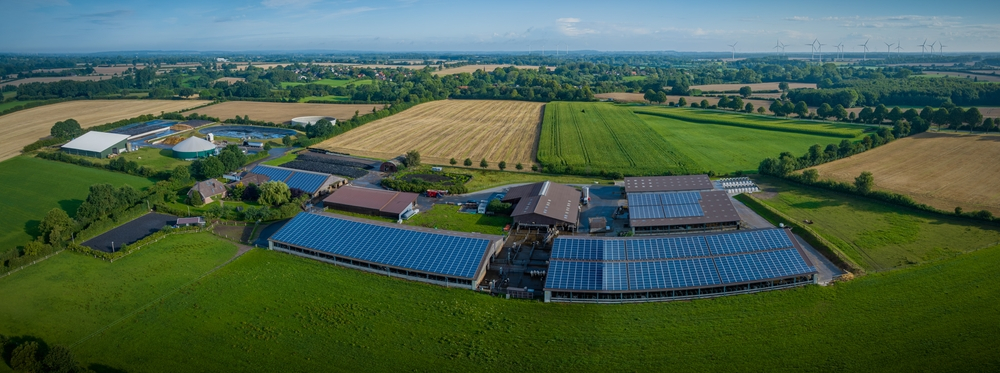In the realm of modern agriculture, the quest for innovation and sustainability is never-ending. Farmers worldwide are continually seeking ways to optimize their operations, reduce costs, and minimize environmental impact. One promising solution that has gained traction in recent years is the integration of solar panels into agricultural practices. But what exactly is the impact of agriculture solar panels on crop yields? Let’s delve into this question and explore the potential benefits and challenges associated with this technology.
Understanding Agriculture Solar Panels: How Do They Work?
Before we assess their impact on crop yields, it’s essential to grasp the basics of agriculture solar panels. Unlike traditional solar panels installed on rooftops or in solar farms, agriculture solar panels are specifically designed for use in farming environments. These panels are mounted on structures such as ground-mounted racks, pole mounts, or even on the roofs of farm buildings. They harness sunlight to generate electricity, which can be used to power various farm operations or sold back to the grid.
One of the key advantages of agriculture solar panels is their dual functionality. Not only do they produce renewable energy, but they also provide shade for crops and livestock, helping to mitigate the effects of heat stress during hot summer months. Additionally, by converting sunlight into electricity, agriculture solar panels reduce the reliance on fossil fuels, thereby lowering greenhouse gas emissions and contributing to a cleaner environment.
The Potential Benefits
Now, let’s address the central question: Can agriculture solar panels truly enhance crop yields? While the direct impact may vary depending on factors such as location, climate, and crop type, several potential benefits suggest that they can indeed contribute to improved agricultural productivity:
Increased Energy Efficiency:
By harnessing solar energy, agriculture solar panels reduce the need for grid electricity to power farm operations such as irrigation, lighting, and machinery. This can lead to cost savings for farmers and potentially higher profits.
Optimized Water Management:
Many agriculture solar panel installations are integrated with irrigation systems, allowing farmers to pump water directly from wells or reservoirs using solar-powered pumps.
This efficient water management can result in better soil moisture levels, which are essential for healthy crop growth.
Extended Growing Seasons:
In regions where sunlight is abundant but water resources are limited, agriculture solar panels can help extend the growing season by providing a reliable source of energy for greenhouse heating or crop drying. This flexibility can enable farmers to cultivate crops year-round, maximizing their overall yields.
Protecting Crops from Extreme Weather:
Agriculture solar panels serve a dual purpose as shade structures, providing protection to delicate crops during periods of intense sunlight or hailstorms. This shelter can help reduce crop damage and minimize yield losses, particularly for vulnerable plants.
Improving Soil Health:
The presence of agriculture solar panels can create microclimates beneath them, fostering conditions conducive to beneficial soil organisms and microbial activity. Over time, this can lead to improved soil health and nutrient cycling, ultimately enhancing crop resilience and productivity.
Challenges and Considerations: Factors to Keep in Mind
While the potential benefits of agriculture solar panels are compelling, it’s essential to acknowledge the challenges and considerations associated with their implementation:
Initial Investment Costs:
The upfront cost of installing agriculture solar panels can be significant, requiring farmers to make a substantial financial investment. However, various incentive programs, tax credits, and financing options may help offset these costs over time.
Maintenance and Durability:
Like any technology, agriculture solar panels require regular maintenance to ensure optimal performance. Dust, debris, and bird droppings can accumulate on the panels, reducing their efficiency if not promptly cleaned. Additionally, panels must be durable enough to withstand exposure to harsh weather conditions and potential damage from wildlife.
Land Use and Space Requirements:
Agriculture solar panels occupy land that could otherwise be used for crop production or grazing. While they can be integrated into existing farming systems without displacing crops entirely, careful planning is necessary to maximize land use efficiency and minimize disruptions to farm operations.
Regulatory and Permitting Considerations:
Depending on the jurisdiction, installing agriculture solar panels may require obtaining permits, adhering to zoning regulations, and complying with environmental impact assessments. Navigating these regulatory requirements can add complexity to the implementation process.
Integration with Existing Infrastructure: Integrating agriculture solar panels into existing farm infrastructure, such as irrigation systems and electrical grids, requires careful planning and coordination. Farmers may need to invest in additional equipment or make modifications to ensure seamless integration and compatibility.
In the pursuit of advancing renewable energy solutions, companies like DSG Energy are playing a pivotal role. DS Group of companies, including DSG Energy, was established with a vision to contribute back to the motherland, Pakistan. Specializing in the power sector with a focus on renewable energy, DS Group is committed to driving innovation and sustainability in the agricultural sector. Through their expertise in consultancy services, they provide valuable insights and support to both public and private sector stakeholders embarking on large-scale projects, including the integration of agriculture solar panels. By leveraging their experience and resources, DSG Energy is contributing to the adoption of renewable energy technologies and the enhancement of crop yields in farming communities across the country.
Final Words
In conclusion, agriculture solar panels have the potential to enhance crop yields and improve the overall sustainability of farming operations. By harnessing the power of the sun, farmers can increase energy efficiency, optimize water management, and protect crops from extreme weather events. However, realizing these benefits requires careful planning, investment, and ongoing maintenance to overcome challenges such as initial costs, land use considerations, and regulatory requirements.
As technology continues to advance and renewable energy solutions become increasingly accessible, agriculture solar panels are poised to play a crucial role in the future of farming. By embracing innovation and adopting sustainable practices, farmers can not only boost their productivity and profitability but also contribute to a more resilient and environmentally friendly food system for generations to come.

